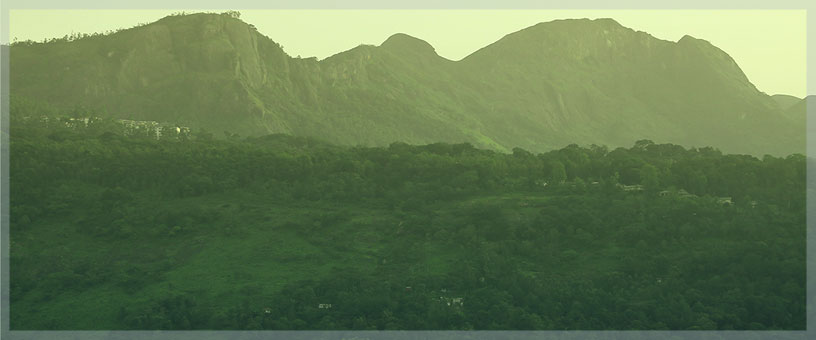
Bison Valley
In the history of Kerala, Bison Valley is an unsung hero. Only when one looks into the very early history of Kerala, that the relevance and importance of Bison Valley gets fully appreciated. Such a search takes one way back to the voyages of the ancient traders who reached Kerala’s shores from the then affluent nations in the world seeking the ‘King’ and ‘Queen’ of spices; Black Pepper and Cardamom respectively. The fact is that Bison Valley forests and the area which has now become villages like Rajkad and Rajakumari has been abundant with premium quality Black pepper and Cardamom endemic to this specific environment, since those early days. The outstanding quality of these spices is what transpired as the compelling factor for traders from all over the world to set sail for the shores of Kerala. When one looks at the big picture, it is evident that this has helped India to be known as ‘the land of spices’.
What remained strictly as a forest produce till the end of the 18th century, evolved into a major agricultural produce of Kerala and India in the later years. Here you have a fascinating story spanning about 150 years to be understood and absorbed by touring these precious hills.
For the first time ever, SpiceTree is offering a program to explore Bison Valley to reveal its ‘Spice’ tradition using the guidance of a trained team of experts who have an in-depth knowledge about this area and its valuable place in history. They will help you to get a first- hand knowledge about the culture and traditions woven into the fabric of the society that dwells here now.
May the story of the ‘King’ and ‘Queen’ of spices make your holiday exciting and rewarding during your expedition through these enchanting hills. SpiceTree, with its premium quality accommodation facilities has now added a fresh new chapter and dimension to Kerala’s tourism prospects at Bison Valley.
Ultimately our goal is to connect our clients to the local community so as to make it a mutually enhancing and educational interaction. This is also part of our broader vision to contribute to ‘Responsible Tourism’ by demonstrating our social responsibility.
A guest now has yet another added advantage. As of July, 2012, the Western Ghats has made it to the coveted position in the World Heritage List. The Western Ghats is a 1,600 km long mountain range that runs through Kerala, Tamil Nadu, Karnataka, Goa, Maharashtra, and Gujarat. The 1,40,000 sq.km mountain is home to a number of endemic plants and animal species. The inscribed sites from the Kerala part of the Ghats include Eravikulam and Mankulam which are close to the Bison Valley. It was pointed out that the sites had an exceptionally high level of biological diversity. The forests of the site include some of the best representatives of non-equatorial tropical evergreen forests anywhere, and are home to over 5000 different types of Flora and Fauna, of which 325 are globally threatened flora and fauna. This area is older and has more bio-diversity than even the Himalaya Mountain ranges. It also is home to 140 unique mammals, 16 of which are seen nowhere in the world. The endangered Lion Tailed Macaque and the Nilgiri Thar are among this list. Among the 508 bird species, 16 are present only in this area. There are a total of 52 different species that are in the endangered list from this sensitive area of the Western Ghats.



